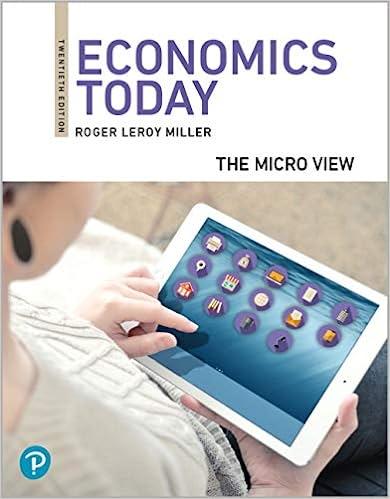Three economists at the Federal Reserve Bank of St. Louis Andrew Levin, Fabio Nattaluci, and Jeremy
Question:
Three economists at the Federal Reserve Bank of St. Louis – Andrew Levin, Fabio Nattaluci, and Jeremy Piger – have attempted to measure the effects of a short-lived increase in actual inflation on expectations of future inflation. They considered what would happen to U.S., Japanese, and Euro-area inflation expectations if the actual inflation rate rose by 1 percentage point for just three years.
Their estimates imply that, other things being equal, even five years after this short-lived inflation occurred, the public would expect the future annual inflation to be about a third of a percentage point higher. As much as 10 years later, the expected annual inflation rate would still be one-fourth of a percentage point higher. Thus, the authors conclude that higher actual inflation has a significant holdover effect on long-term inflationary expectations.
The same authors also examined nations, such as Canada and the United Kingdom, where central banks announce inflation targets. They concluded that in these nations, a 1 percentage point increase in actual inflation for three years would raise expected future inflation by only 0.09 percentage points five years later and 0.01 percentage points ten years later.
Why does higher actual inflation have a smaller effect on inflation expectations when a central bank announces inflation targets?
Step by Step Answer:






